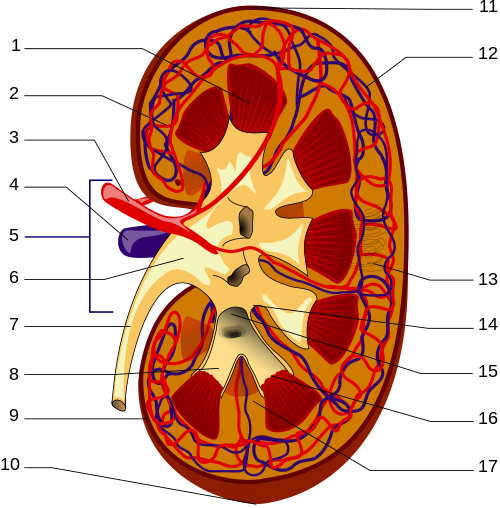
Photo from academic.microsoft.com
Hyperkalemia, defined as serum potassium concentrations greater than 5.0 to 5.5 mEq/L, is a frequent occurrence in clinical practice because of the increasing incidence and prevalence of CKD. Patients at… Click to show full abstract
Hyperkalemia, defined as serum potassium concentrations greater than 5.0 to 5.5 mEq/L, is a frequent occurrence in clinical practice because of the increasing incidence and prevalence of CKD. Patients at risk for this disorder are commonly treated with drugs that interfere in the renin-angiotensin-aldosterone system, thereby enhancing the occurrence and prevalence of this disorder. Discontinuation of these drugs because of the development of hyperkalemia deprives these patients the renal-protective and cardiovascular benefits this class of pharmacology has been shown to provide. Here we provide the clinician strategies to both prevent and treat hyperkalemia in patients with CKD who are prescribed these drugs. We emphasize the importance of limiting dietary potassium intake and avoiding either prescribed or over-the-counter medications that may impair renal potassium excretion. We discuss the role of kaliuretic diuretics and correction of metabolic acidosis as a therapeutic strategy. Additionally, we discuss the role of new agents designed to bind potassium in the gastrointestinal tract that can be used to maintain normokalemia in patients who previously developed hyperkalemia on renin-angiotensin-aldosterone blockers. Finally, we provide a brief discussion on how best to treat hypokalemia in patients with CKD.
Journal Title: Advances in chronic kidney disease
Year Published: 2017
Link to full text (if available)
Share on Social Media: Sign Up to like & get
recommendations!